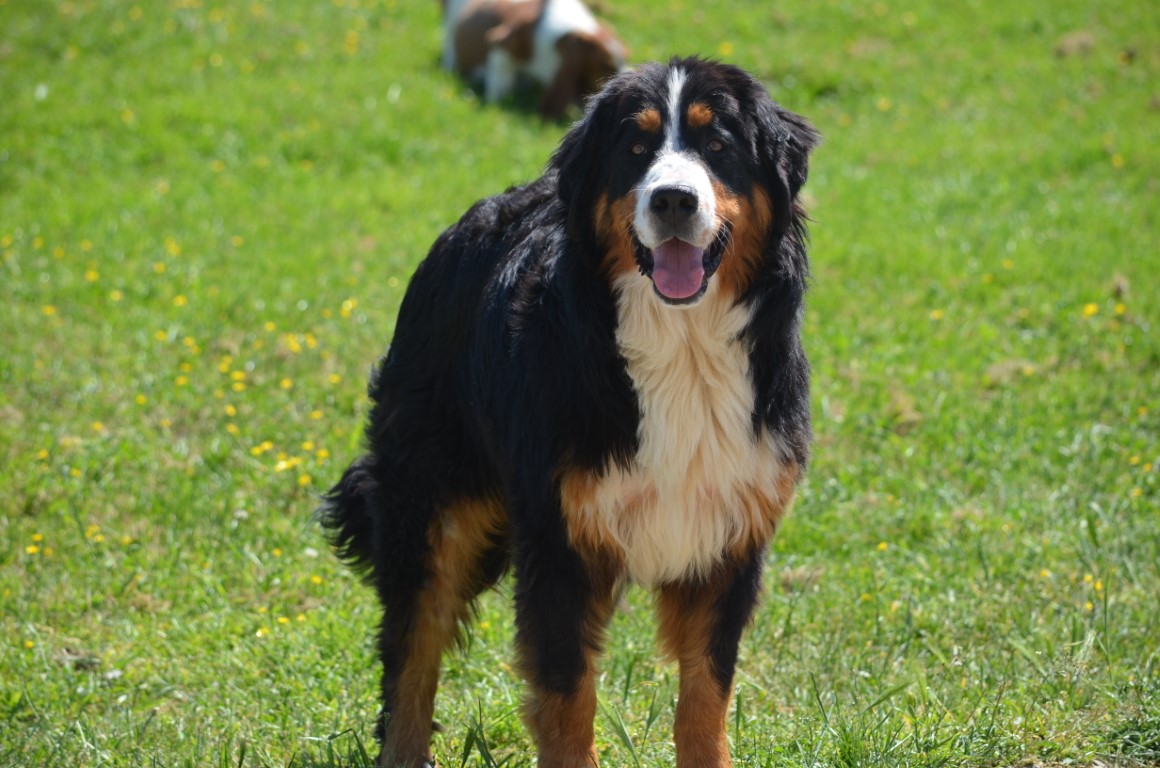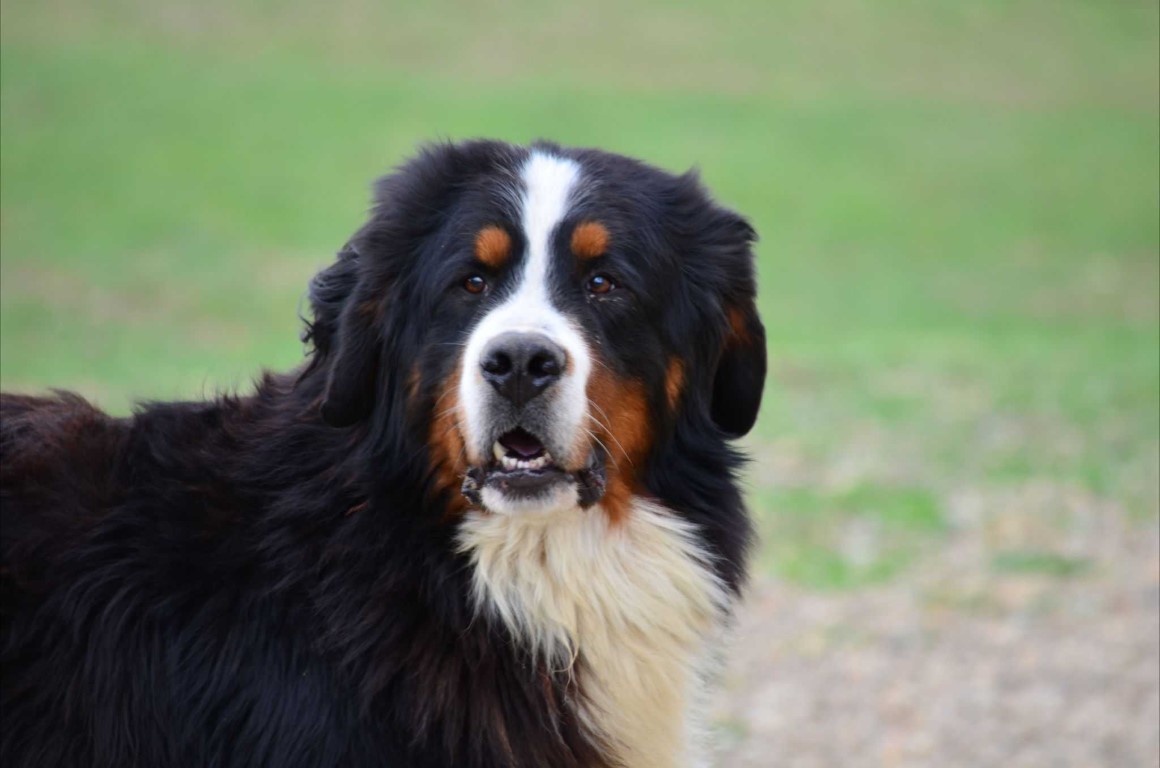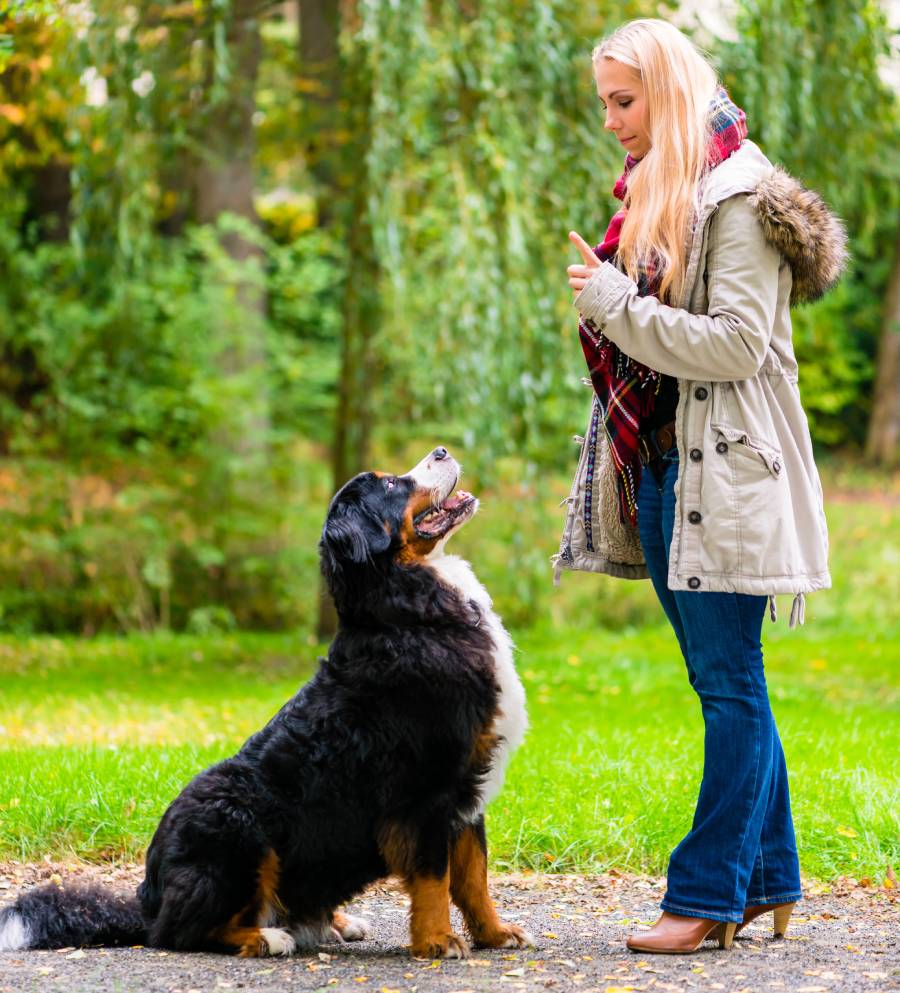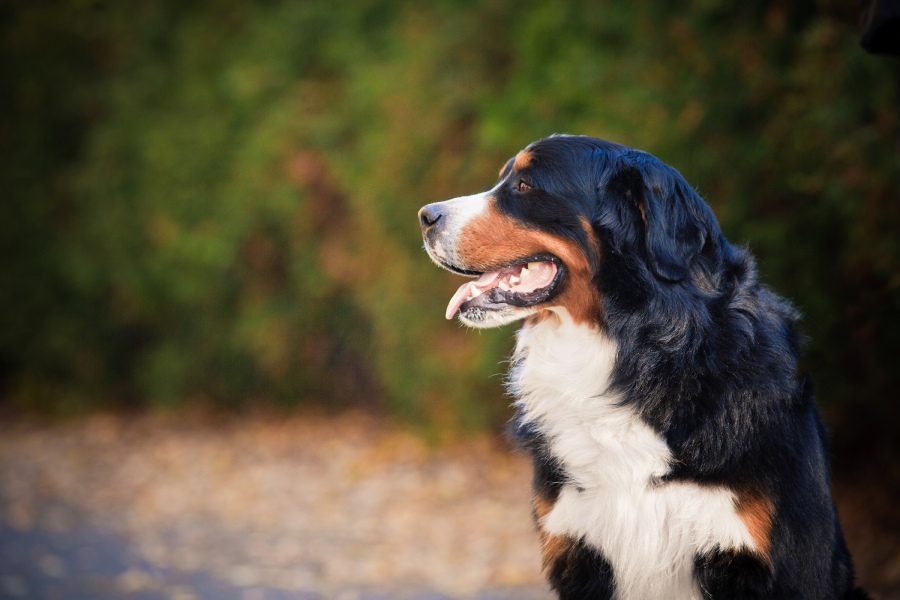THE ORIGINS AND HISTORY OF THE BERNESE MOUNTAIN DOG
The Bernese Mountain Dog is the best known of the four Swiss mountain dog breeds.
A popular herding dog in Swiss mountain pastures for centuries, the Berner has become an attractive and docile pet.
For a long time it was thought the Berner was a descendant of the Tibetan Mastiff, a breed introduced into Switzerland during the Roman conquest. The evolution of the breed is closely linked to Switzerland’s history.
The Berner has been used as a herding dog and a guard dog.
It has a coat of three colours and was particularly common in the village of Düwwbächler near Riggisberg in the canton of Berne.
BERNESE MOUNTAIN DOG IDENTITY CARD
|
Group |
FCI Group 2. Section 3.
Swiss Mountain Dogs |
|---|---|
|
Height at withers |
64 to 70 cm for males.
58 to 66 cm for females. |
| Coat | Black, white and rust. Long-haired, shiny tricolour coat, smooth or slightly wavy. |
| Weight | About 40 k |
| Temperament | Affectionate and faithful. A balanced character.
A Bernese Mountain Dog is a deterrent without being aggressive and readily joins in with children’s games. |
| Suitable as | A working dog. A guard dog, a protective dog, a herding dog or a pet. |
| Living conditions | A garden is essential. |
| Diet | At least 650 g of dry, wholemeal dog food per day. We recommend you opt for a traditional diet. |
A DESCRIPTION OF THE BERNESE MOUNTAIN DOG
Aside from its role with herds, the Bernese Mountain Dog used to be appreciated for its qualities as a guard dog. Nowadays, its image as a gentle protector makes it a highly popular breed as a family pet.
In order to play all these roles successfully, a dog needs to have a good, even temperament, which is almost second nature to a Berner. While always keeping one eye on members of the family, the other will be quietly watching everything else that is going on around him. He will naturally come to know the boundaries of his territory and the arrival of any stranger will be signalled with a clear, deep bark.
When his master is present, the Berner will accompany the stranger to the house and stay close so as to observe the behaviour of the newcomer.
Bernese Mountain Dogs have an acute instinct to guard. They will defend their master’s goods and property if they deem them under threat. Bernese Mountain Dogs are not always gentle, despite the image of an affectionate teddy bear that we readily attribute to them.
As a general rule, initial contact is very friendly, but occasionally you will come across dogs who do not appreciate such familiarity. The fact is, the Bernese Mountain Dog has held on to its character, and this proud and imposing dog is not an ornament and is not to be confused with a cuddly toy.
TRAINING
The reason why Bernese Mountain Dogs didn’t chase hens or cats in the farmyard back in the day is because they learned what, or who, was useful to their masters. This tolerance that they still display is the result of a slow process of adaptation to their environment. It would be foolish to think that a Berner thrust into city or semi-rural life would be able to adopt the same attitude instantaneously. But, with proper training, in just a few months it can pick up all its ancestors spent centuries learning. It will learn how to remain calm when coming across another animal in the street, or dial down its guarding instinct so it does not pose a problem to visitors to the family home.
FOR A HEALTHY DOG
The best way to keep a Bernese Mountain Dog in shape is to give it some responsibilities. This is an animal that likes to make itself useful so it will appreciate anything you ask of it if it makes it feel it’s helping out. Naturally this former farm dog is capable of pulling small carts to keep the children amused or to be of service, such as carrying something from A to B, but it is not a sled dog!
The Berner is sturdy and hardy enough to live outdoors, as long as it has a kennel to provide shelter in bad weather. But it shouldn’t be left on its own all day long too often. It does need space so if you are not able to take it for frequent, long walks you absolutely have to have a garden. Berners need their masters – they need to spend time with them and play with them.
If they suffer from loneliness, these dogs can become mistrustful or even aggressive from a very young age. And even if they can be trained to obey all members of their family, they struggle if they change owners too often.






